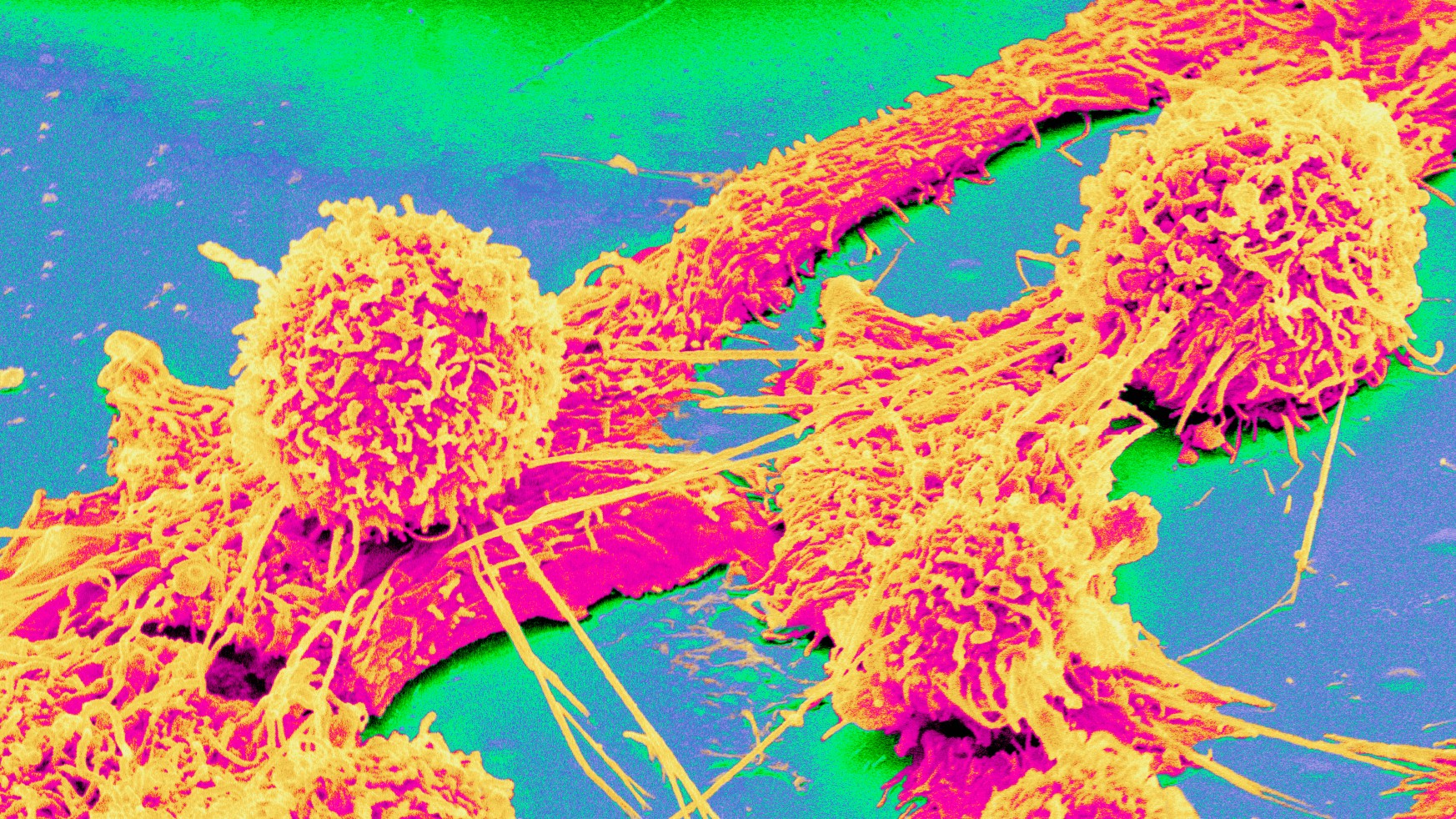
Scientists have identified molecules in the blood that could potentially be used to identify young adults at risk of developing colorectal cancer and thus flag them for preemptive screening.
Colorectal cancer predominantly affects people over 50, but it's on the rise in younger people in the U.S. — in 1992, the diagnosis rate was 8.6 in 100,000 people under 50, but in 2018, it rose to 12.9 in 100,000.
In a recent study, published in July in the journal NPJ Precision Oncology, researchers found that patients diagnosed with colorectal cancer before age 50 have higher levels of specific metabolites in their blood, compared with colorectal cancer patients over 60. Metabolites are byproducts of digestion, cellular activity and drug breakdown that circulate in the blood.
The younger patients had higher levels of metabolites related to the production and breakdown of an amino acid, or protein building block called arginine. The body makes its own arginine, and the substance is also naturally found in protein-rich foods, such as meat and nuts. It's involved in many cellular processes, including protein production and the urea cycle — how the body gets rid of toxic byproducts left over from protein metabolism, namely ammonia.
Related: Scientists just grew super realistic, miniature colons in the lab and gave them cancer
In addition to arginine, the younger cancer patients had higher levels of metabolites related to the urea cycle than did the over-60s. According to the study authors, the findings suggest that having more arginine in the blood and unusually high activation of the urea cycle may drive colorectal cancer in young people.
They say that the finding could help doctors identify younger people who are at highest risk of developing the cancer. The idea is that these individuals could be put forward for regular screenings, including colonoscopies and stool-based tests. These are usually reserved for people over age 45 who have an average risk of the disease, or slightly younger people with a family history of the condition.
"At the end of the day, it's impractical to apply our care models for those over 60 to younger adults simply because we cannot give everyone in the system yearly colonoscopies," Dr. Suneel Kamath, study co-author and a gastrointestinal oncologist at Cleveland Clinic, said in a statement.
"What is much more feasible is to give everyone in the system a simple test to measure a biomarker [metabolite in blood] that determines their colorectal cancer risk," Kamath said. "Then we can give the most at-risk individuals appropriate screening."
Notably, though, the scientists would first need to run trials to justify using the metabolite test in that way, to demonstrate that it actually helps reduce cancer deaths in the long run.

What the study found
In their recent study, the scientists aimed to better understand a potential link between the gut microbiome and the onset of colorectal cancer in younger people. To do so, Kamath and colleagues analyzed microbes found on tumor tissue samples from 64 patients who had been diagnosed with colorectal cancer — 20 before age 50 and 44 after 60.
Inspired by previous research, the team also analyzed various metabolites within the patients' blood. They then used artificial intelligence to help identify metabolites and microbes that were found only in the younger patients, or at least found in notable quantities.
This analysis suggested that specific metabolites in the blood, rather than particular microbes in the gut, were most useful for differentiating colorectal cancer in younger patients and older patients. However, the study cannot say why the younger patients had higher levels of arginine in their blood or how this might actually affect their cancer risk.
The study also didn't consider other aspects of the patients' biology that may have impacted the validity of the findings, Andreana Holowatyj, an assistant professor of medicine and cancer biology at Vanderbilt University who was not involved in the research, told Live Science. For example, they didn't evaluate differences between the sexes or consider past antibiotic use, both of which can influence a person's metabolism and their gut microbiome, she said.
It is also unclear if any of the patients received chemotherapy before the study began, said Dr. Cathy Eng, a professor of medicine, hematology and oncology at the Vanderbilt-Ingram Cancer Center who was not involved in the research, told Live Science in an email. Chemotherapy can change the composition of the gut microbiome, so it's possible that not accounting for the use of these drugs may have skewed the results.
The researchers themselves theorized that the high arginine levels may be related to long-term consumption of red and processed meats; high consumption of these foods has previously been tied to an increased risk of getting colorectal cancer. However, given that the team didn't collect any data on people's diets, the high arginine could well be related to a factor apart from food.
Despite their limitations, the findings do demonstrate how measuring multiple layers of cellular biology — an approach known as "multi-omics" — can provide new insights into disease development, Holowatyj said.
In the future, the team hopes to confirm their findings in larger cohorts of people. If the link seems robust, they'd then like to test whether changing a young person's diet or giving them a drug that reduces the body's inbuilt arginine production could reduce the risk of developing colorectal cancer.
This article is for informational purposes only and is not meant to offer medical advice.
Ever wonder why some people build muscle more easily than others or why freckles come out in the sun? Send us your questions about how the human body works to community@livescience.com with the subject line "Health Desk Q," and you may see your question answered on the website!







